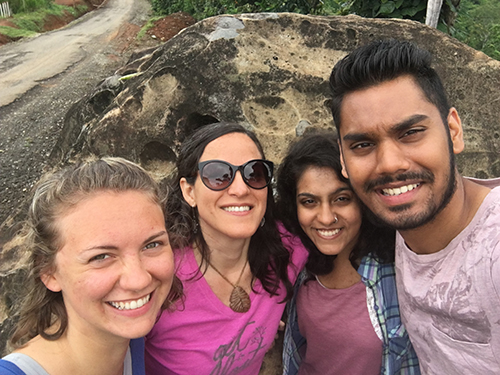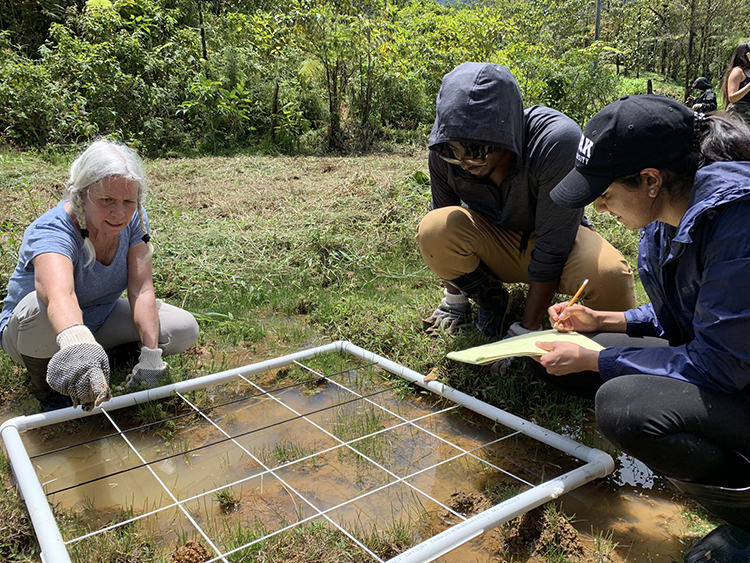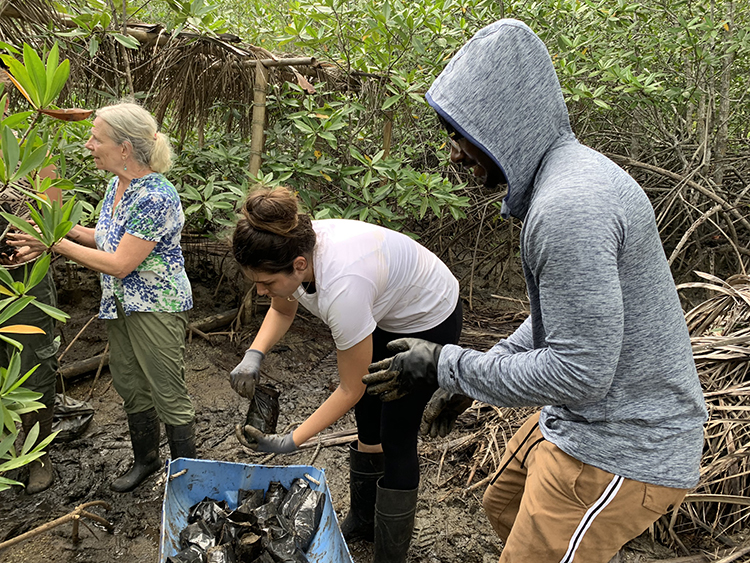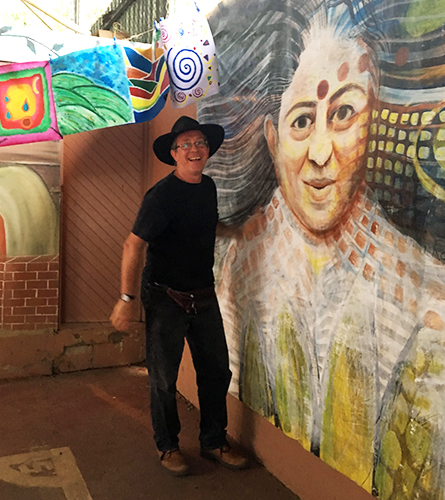
Following a two-year hiatus due to the pandemic, courses at York University’s unique Eco-Campus in Costa Rica are welcoming students back to the rainforest.
By Elaine Smith

Study abroad courses return with renewed energy at Las Nubes, York University’s EcoCampus in Costa Rica.
After a two-year hiatus due to the COVID-19 pandemic, Las Nubes, which is run by the Faculty of Environmental and Urban Change (EUC), is welcoming summer students with nine diverse course offerings – and growing, says York alumna Ana Maria Martinez, (MES '10, PhD '17), associate director of the EcoCampus.
“We’ll be offering courses from three Faculties – EUC, Glendon and Health – and we are hoping that two others will come on board in the coming year,” Martinez said. “We have 115 students coming this summer, the most we’ve ever had. We accept students from all disciplines and this year, we’ll have a student from the University of Manitoba joining us; there is always interest from outside the University.”
The courses taught at Las Nubes, as always, are experiential education (EE) classes that draw on the setting of the EcoCampus, 414 rural acres sitting on the slope of the Talamanca Range in Southern Costa Rica, part of the Alexander Skutch Biological Corridor. Many of those acres were donated to the University in 1998 by Woody Fisher and others have followed suit. The focus of EcoCampus courses is experiential education, drawing on the long-standing relationships with diverse communities and groups in the area. Students interact with the residents of the local communities and often participate in homestays to experience life as it is lived in the Las Nubes area.
The offerings for Summer 2022 include: Protected Area Management; Globalization and Indigenous Peoples; Environmental Psychology; Natural History; and Conservation and Development for Social-Environmental Sustainability and Wellbeing, among others.

For example, the natural history course, taught by Leesa Fawcett, an associate professor of environmental studies at EUC, is what she calls “an intense course that provides students with an embodied, intellectual understanding of the natural history of the area, which is intertwined with the challenges facing the communities there.”
She loves being able to offer an EE course because “different settings bring out unique things in people and the course brings out the best in them. It’s challenging being in a new setting and new culture where another language is spoken, but it’s also a gift – that’s how you grow.”
Her course involves lots of activities, including field trips to area farms and parks, walking through the tropical forests, kayaking the watershed by travelling along a river to the ocean, and doing projects with the local schools and with non-governmental organizations.

“We help the NGO do something they need,” Fawcett said. “One year, we planted mangrove trees, which is very hard work, but they are so important in the protection of coastal communities, biodiversity and waterways.”
The students get to see the local flora and fauna up close – monkeys, iguanas, crocodiles, insects of all kinds and lots of birds. Each student chooses a species to observe and is responsible for a presentation and paper on it; they also keep journals, do group presentations in class and participate in the community and NGO projects.
“It’s like an intense intellectual summer camp,” Fawcett said.
Professor Felipe Montoya, director of the EcoCampus, will be teaching both the courses Environmental Arts and Food Sovereignty, and Conservation and Development for Social-Environmental Sustainability and Well-being this summer. The first will focus on water in 2022, exploring access, governance and water quality; students will also contribute to the annual local arts festival, ExpoCOBAS, by using art to create a conversation about resources.

His conservation course focuses on different initiatives that strive to achieve balance between development and conservation. Students will explore the work of agro-ecological farms, co-ops with a social mandate and Indigenous communities and compare them to agro-industrial systems that concentrate land in a few hands.
“We’ll look at environmental justice and sustainability by seeing different experiences and discussing the pros and cons,” Montoya said.
Montoya, like Martinez, is delighted to have other faculties join EUC in offering courses at Las Nubes.
“The idea has always been to make this a University-wide facility and we hope the campus becomes a place for all Faculties at York, as well as for non-degree courses and administrative retreats,” he said. “We’re also open to having Costa Rican universities and other universities whose schedules fit into ours use it. We’re hoping for it to be an active campus throughout the year. We’re eager for people to come up with proposals and we’re happy to facilitate options.”
He is delighted by the way the campus has grown, thanks to land donations and fundraising to purchase adjacent parcels. York has committed to supporting the campus by constructing lodgings so that the existing Lillian Meighen Wright Centre can be used solely for research and education. York Libraries have helped Las Nubes establish a library space, La Casita Azul, in the nearby town, making it a resource centre for both students and the community. Montoya would like to expand the research and knowledge mobilization activities so the campus can also become an international hub for rural studies.
“We’ve had a huge surge of interest post-pandemic,” Montoya said. “It’s encouraging for our continued growth and improvement.” Added Martinez, “The late professor who began the Las Nubes project would be so happy to see what we’ve become. We have this lovely place, and we want people to use it.”
